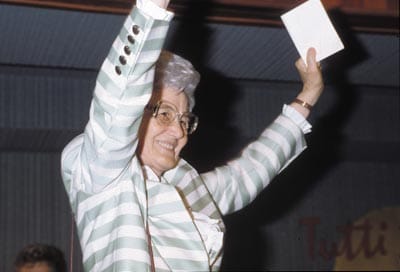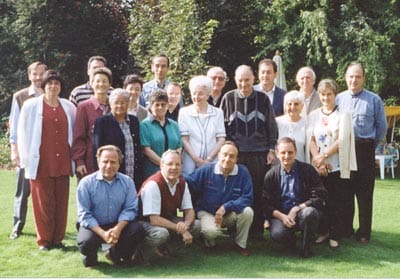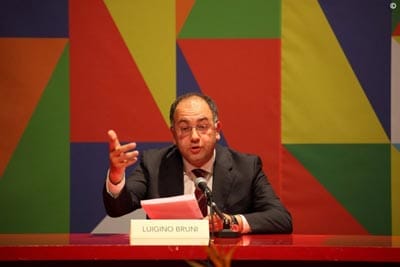
Chiara Lubich, Brazil 1991 – © Centro S. Chiara Audiovisivi
since
Chiara Lubich sowed the seed of the
Economy of Communion (EoC) in Brazil in May 1991. I was a new graduate in economics then and felt that the events in Sao Paolo also concerned me. Though I had no idea how, I guessed that I was part of that story which had just begun. I know now that participation in the development of that “dream” was a decisive event in my life which would have been quite different if that prophetic encounter between a woman’s foresight and the Brazilian people had not taken place.
The Berlin wall had just been demolished and in that world and time, the proposal Chiara launched to the entrepreneurs to share talents, wealth and profits to address poverty directly, echoed like a great innovation which made EoC an important economic-social novelty and on the front of the social responsibility of enterprises which were in its early years (…). The DNA of that seed enclosed a different idea of the nature of profits and, therefore, of business intended as the common good, in a global and worldwide perspective (not common in those years). The businessmen were thus involved in the solution of a social issue of inequality.

Chiara Lubich and Abba School members (Luigino Bruni, third row, third from right) – © Centro S. Chiara Audiovisivi
, but instead of launching a social project in the outskirts of the city or fund raising, addressed her proposal to the entrepreneurs whose first aim as we know, is not the creation of profits to be donated outside the business (…). The core of the EoC, therefore, enclosed the idea that to reduce poverty and inequality, we need to reform capitalism and its main institution: the enterprise, entrepreneurship. The language and first cultural mediation of Chiara’s project were those that were available in society, the Church, the Brazilian people and the Focolare Movement.
After 25 years, however, the great collective challenge facing the EoC is to try to express the discernments and heart of the 1991 event in words and categories able to speak and make itself understood in a cultural and socio-economic world which in these 25 years has radically changed. Even on the front of social responsibilities enterprises have advanced greatly with the turn of the millennium. Social business has become a varied, dynamic movement in constant growth. The so-called “sharing economy” is giving rise worldwide to very innovative experiences. The reflection on poverty and the actions to alleviate it have been enriched, thanks to the ideas and actions of economists like
Amartya Sen and
Muhammad Yunus.

© Centro S. Chiara Audiovisivi
, are in themselves an innovation. But if we continue in 2016 to concretise the EoC proposal with those same formulas, the proposal would not be sufficiently attractive and would be obsolete, especially for the youth. In the radically changed social and economic world, the EoC is called to renew itself, as it is doing and has always done, having reached its “silver” wedding anniversary. And it is rightly a wedding, since each time a charism manages to incarnate itself, there is an espousal encounter between heaven and earth, and between ideal and history. Such weddings would be like that at Cana when water turned into wine because a woman saw that the people had no more wine, and with faith, had asked and obtained a miracle. Economy of Communion will continue to live and reach its 50th birthday and beyond, if there will be women and men with “new eyes,” able to see what the people of one’s time need and transform profits into food for the body and heart, like the miracle that transformed water into wine. All the best EoC!» source: Città Nuova online
http://www.cittanuova.it/c/455448/L_Economia_di_comunione_ha_25_anni.html


0 Comments